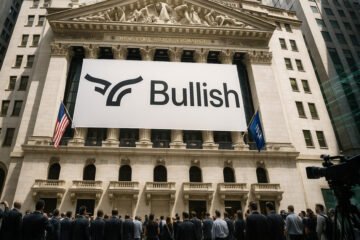The Commodity Futures Trading Commission’s (CFTC) Division of Market Oversight issued an advisory on Aug. 28 clarifying foreign board of trade (FBOT) registration rules for non-US exchanges seeking to provide Americans with direct market access.
Acting Chair Caroline Pham positioned the guidance as a remedy for trading activity that departed during previous enforcement actions.
The advisory reaffirms the CFTC’s framework established in the 1990s, which allows foreign exchanges to register and serve US traders across all asset classes, including digital assets.
Pham stated the guidance provides “regulatory clarity needed to legally onshore trading activity that was driven out of the United States due to the unprecedented regulation by enforcement approach of the past several years.”
The Division of Market Oversight received an increased number of inquiries about FBOT registration requirements and procedures as global derivatives markets expanded into new asset classes and trading platforms.
Recent enforcement actions created confusion about whether non-US exchanges should register as designated contract markets or foreign boards of trade, prompting the clarification.
Path to US markets
The advisory addresses disruption caused by what CFTC describes as novel enforcement interpretations inconsistent with decades of precedent.
American companies forced to establish operations in foreign jurisdictions for crypto asset trading now have a defined path to return to US markets through FBOT registration.
Foreign exchanges must demonstrate comparable regulatory supervision in their home countries and establish information-sharing agreements with US authorities.
Registered FBOTs can provide direct access to eligible US participants, including proprietary traders and registered intermediaries like futures commission merchants.
Universal application
The framework applies universally across traditional and digital asset markets, requiring no distinction between asset classes for registration purposes.
To maintain the highest standards of customer protection, all trades must be cleared through CFTC-registered firms or entities exempt under Regulation 30.10.
Pham characterized the advisory as delivering wins for President Donald Trump’s crypto sprint initiative, stating Americans can now “trade efficiently and safely under CFTC regulations” while opening US markets to global participants.
Notably, the advisory comes one day after the CFTC announced the integration of Nasdaq’s surveillance system, aiming to ramp up the oversight of crypto and derivatives trading.
The guidance builds on earlier initiatives to enable spot crypto trading on designated contract markets. It removes jurisdictional uncertainty that deterred foreign exchanges from serving US markets.
By reaffirming longstanding registration categories, the CFTC provides the “simplest and fastest solution” for non-US platforms seeking compliant access to American traders.
 Bitcoin
Bitcoin  Ethereum
Ethereum  Tether
Tether  XRP
XRP  USDC
USDC  Solana
Solana  JUSD
JUSD  TRON
TRON  Lido Staked Ether
Lido Staked Ether  Dogecoin
Dogecoin  Figure Heloc
Figure Heloc  Cardano
Cardano  Wrapped stETH
Wrapped stETH  Bitcoin Cash
Bitcoin Cash  WhiteBIT Coin
WhiteBIT Coin  Wrapped Bitcoin
Wrapped Bitcoin  Wrapped eETH
Wrapped eETH  USDS
USDS  Monero
Monero  Binance Bridged USDT (BNB Smart Chain)
Binance Bridged USDT (BNB Smart Chain)  Chainlink
Chainlink  LEO Token
LEO Token  WETH
WETH  Stellar
Stellar  Coinbase Wrapped BTC
Coinbase Wrapped BTC  Ethena USDe
Ethena USDe  Zcash
Zcash  Sui
Sui  Canton
Canton  Avalanche
Avalanche  Litecoin
Litecoin  Hyperliquid
Hyperliquid  Hedera
Hedera  Shiba Inu
Shiba Inu  World Liberty Financial
World Liberty Financial  USDT0
USDT0  Dai
Dai  sUSDS
sUSDS  Toncoin
Toncoin  Ethena Staked USDe
Ethena Staked USDe  PayPal USD
PayPal USD  Cronos
Cronos  USD1
USD1  Polkadot
Polkadot  Uniswap
Uniswap  Rain
Rain  Mantle
Mantle  MemeCore
MemeCore 




